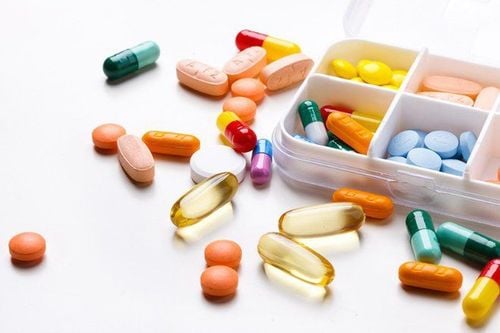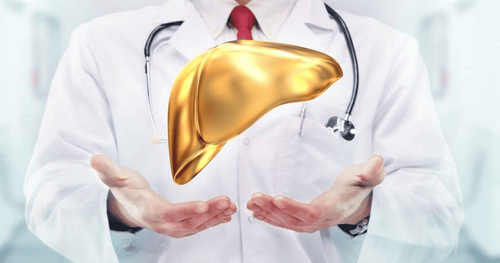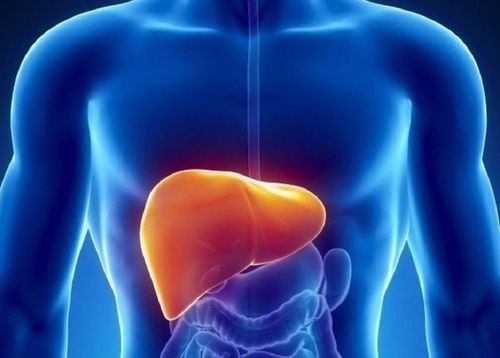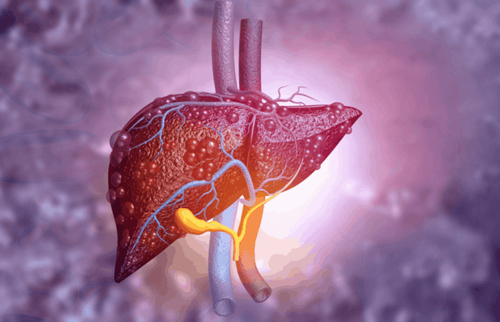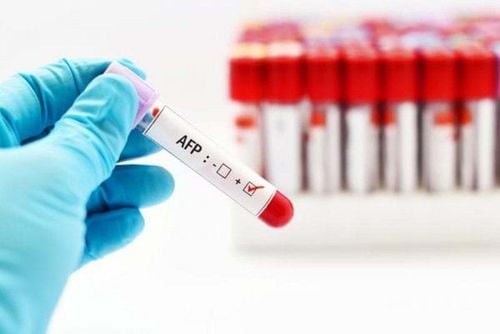This is an automatically translated article.
The article was professionally consulted by Doctor Department of Gastroenterology - Endoscopy, Department of Medical Examination & Internal Medicine - Vinmec Central Park International General Hospital.
Hepatitis, drug-induced liver toxicity is common. The reason is due to some mistakes in drug use and incorrect awareness of the risks and side effects of the drug, causing liver toxicity.
1. Hepatitis, drug-induced liver toxicity
Drug-induced hepatitis is inflammation of the liver, caused by drugs. Drug-induced hepatitis resembles acute viral hepatitis, but parenchymal damage tends to be more extensive.
In the human body, the liver is an organ with many functions and roles, but the most important is the detoxification function by transforming substances into harmless substances for elimination from the body. If the liver is impaired, the liver's detoxification function and drug excretion are also affected. When not metabolized and detoxified due to accumulation of drugs will cause poisoning and high hepatitis.
Although we use drugs in different ways: oral, injection, nasal spray, skin paste, anal placement... the body will absorb it into the blood and convert it in the liver into inactive substances. , which is then excreted in bile or urine.
The arbitrary use of drugs, bluff, makes the risk of liver diseases higher such as acute hepatitis, acute liver failure or chronic hepatitis, cirrhosis, fatty liver or biliary tract disease. Depending on the type of drug, the degree of hepatitis will vary.
When infected with drug-induced hepatitis, patients often do not have many symptoms, even no symptoms, especially mild, chronic and long-lasting. Or there are people who happen to know the condition of the disease through a blood test that shows an increase in liver enzymes. But there are many cases with symptoms of fatigue, loss of appetite, nausea, then jaundice, skin rash, especially patients who are taking anti-tuberculosis drugs, especially in the months after taking the drug.
The illness has an unexpected onset, with chills, fever, rash, itching, joint pain, headache, abdominal pain, loss of appetite, nausea and vomiting. Then, obvious symptoms of liver damage may appear, such as jaundice, dark urine, enlarged liver, and pain. Drug-induced liver injury is acute causing hepatocellular necrosis, accumulation of fat in the liver, or suppression of bile secretion in the liver. In severe hepatitis, when detected, the liver has cirrhosis or severe failure, even at risk of death.

2. Causes and complications
The drug has a curative effect, but due to lack of proper and complete awareness of its use and consequences, it accidentally turns the drug into the cause of hepatitis. Many drugs do not require a prescription, so buying and using them is prone to abuse such as pain relievers and antibiotics.
Normally, if using the above drugs for a long time, patients should use more liver tonic products to create a "shield" to protect the liver and help the liver's detoxification process not be in trouble. However, most often only remember to take medication for treatment but "forget" liver tonic products. This is the reason why patients who are being treated for chronic diseases are more likely to "carry" more liver enzymes, hepatitis
Some drugs that cause liver damage such as:
Painkillers of the acetaminophen group (paracetamol): Common medicine to relieve pain, reduce fever. When using the drug in high doses above 4g/day and for a long time, it will cause hepatitis. Non-steroidal anti-inflammatory drugs (aspirin, diclofenac, profenic...): The percentage of patients with liver damage caused by this group of drugs is very low, but because it is used too widely to treat joint pain, it is classified as an anti-inflammatory drug. to one of the main drugs that cause liver damage. Anti-tuberculosis drugs: such as rifamycin, isoniazid and pyrazinamide are all drugs that commonly cause liver damage. Traditional Chinese Medicine, Traditional Chinese Medicine (Traditional Chinese Medicine): Many patients think that traditional medicine and traditional medicine are very benign. However, because people's awareness is still limited, the side effects of these drugs are not fully known. In fact, Chinese traditional medicine causes severe liver damage, even acute liver failure, which can lead to death if used long-term and overdosed. Dewormers and some other drugs : Some antibiotics, fungicides such as ketoconazole; drugs to treat hyperlipidemia; antidiabetic drugs; anesthetics and many more... Acute liver failure can occur but is not common with drug-induced hepatitis. The risk of acute liver failure depends on the drug and abnormal levels of liver enzymes and the presence of previous liver disease. Females are usually at higher risk.
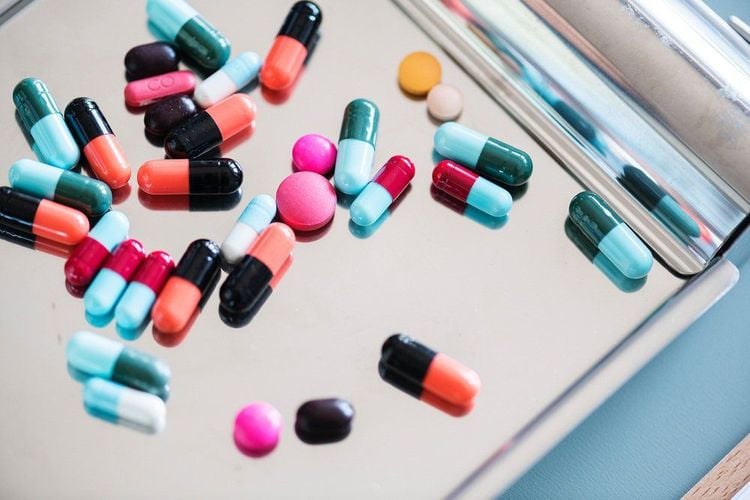
3. Diagnosis and treatment
Diagnosis: Hepatitis often has no specific signs, so the diagnosis is often difficult. When a patient has symptoms of hepatitis, they should immediately go to a medical facility for examination. Here, the patient should clearly state the medical history, the drugs being used and the specific symptoms. This, in turn, will help your doctor see if the drugs are damaging your liver. On that basis, liver function tests, bile, liver ultrasound will be done. When in doubt and absolutely necessary, other laboratory tests (computed tomography, magnetic resonance imaging or liver biopsy...). Treatment: In fact, there is no more specific treatment for drug-induced hepatitis than stopping the drug that is causing the disease. Patients should immediately stop the drugs suspected of causing liver toxicity, combined with supportive treatment and a reasonable diet can make the disease gradually subside. Patients with acute hepatitis should avoid physical activity, alcohol, paracetamol and other hepatotoxic substances. However, except for the use of N-acetylsysteine for drug-induced liver toxicity, there is no specific antidote. for drug-induced hepatitis. There are some cases of liver damage that progresses very badly leading to acute liver failure, affecting life, requiring supportive treatment for acute liver failure and even liver transplantation to save the patient's life.
4. Prevention
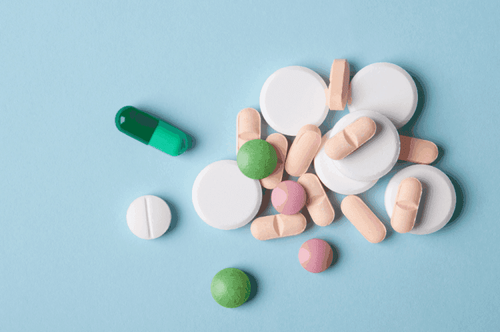
For human health, prevention is better than cure. Therefore, to prevent liver diseases, help the liver detoxify the body in the best way. Patients should learn carefully about drugs, dosages, drink lots of water and possible risks about current and upcoming drugs.
Absolutely, do not arbitrarily use the drug without being examined or instructed by a doctor. When patients need to use drugs for a long time and cause liver toxicity, they should be used with supplements and functional foods of natural origin that have been clinically tested to protect the liver, lower liver enzymes, detoxifying and enhancing liver function, helping to ensure the metabolic activity in the liver. Experts recommend ultrasound, monitoring liver function every 3-6 months to detect changes and have timely treatment.
To protect the liver and its functions, people should change their healthy lifestyle such as limiting alcohol and beer; limit eating greasy dishes, fast food, limit exposure to toxins in the air such as smoke, pesticides, fertilizers... Should drink a lot of water, supplement vitamins and micronutrients necessary amounts for the body such as vitamins A, E, K, C... At the same time, use foods that help purify the liver such as bitter melon, garlic, gac, ... for a healthier liver.
Please dial HOTLINE for more information or register for an appointment HERE. Download MyVinmec app to make appointments faster and to manage your bookings easily.




